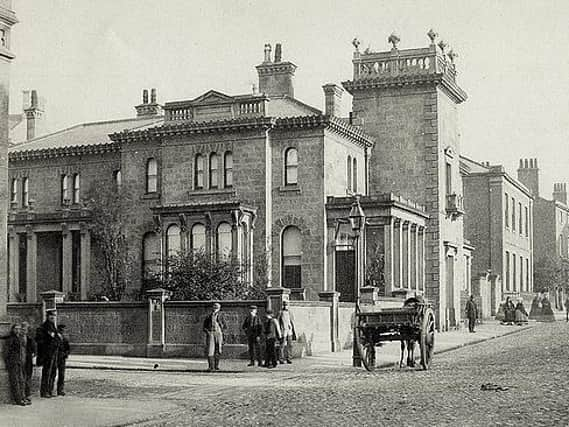Preston vagrant pledges to leave town after making death threats


On the first Friday of August 1857 there were two unwelcome callers at the Winckley Square mansion of cotton manufacturer William Ainsworth. The following morning John Williams and Denis Shea appeared in the dock at the Preston police court accused of vagrancy and intimidation.
Before Mayor William Humber and a bench of magistrates the court heard first from the housekeeper of Mr. Ainsworth. She stated that the two men, dressed in the garb of sailors, had on the previous evening called at her master’s house and solicited alms. After she refused to give them anything she claimed that Williams had drawn his hand across his throat and said he would be revenged upon her.
Advertisement
Hide AdAdvertisement
Hide AdChief Constable Joseph Gibbons was next to give evidence and he stated that after the time mentioned by the witness he had give the accused pair sixpence and some bread, in consequence of a pitiful tale they told him.
However, when he was later informed of their behaviour towards the housekeeper he ordered them to be apprehended.
After their deliberations the magistrates sentenced both men to one month in the House of Correction. On leaving the dock, Williams threatened that he would burn Mr. Ainsworth’s house down. Bellowing lustily: “ By the Lord Jesus Christ I will set fire to that bloody house and that woman and you will see what a Yankee can do.”
After his uproar ended the chairman Mayor Humber ordered that Williams be brought up again on the expiry of his prison term.
Advertisement
Hide AdAdvertisement
Hide AdOn the first Saturday of September the American seaman Williams once more faced the magistrates. This time he appeared contrite, saying he never intended to do anything of the sort and falling down on his knees in the dock asked the forgiveness of the court.
Chief Constable Gibbons then spoke on his behalf and explained that he had uttered the threats whilst in a state of great excitement when he realised he was to be imprisoned. Williams then explained to the court that he belonged to New York, and was of Irish descent.
He then promised to leave the town immediately if released. The magistrates after a brief consultation agreed to him being discharged.
Many folk at the time had a dislike for the cotton masters after all only three years earlier had forced the starving workers back to work after the ‘Great Lockout’ over pay and conditions.
Advertisement
Hide AdAdvertisement
Hide AdAt the mill of Thomas Ainsworth and Sons, in Cotton Court, off Church Street, the employees were taught to “honour their pastors and masters and to obey all those placed in authority over them”.
Amongst their twenty rules for employees were the following –
A months notice to be given in writing prior to leaving, the masters have full power to dismiss any person immediately.
Hours of work - from six’ o’clock in the morning until seven thirty in the evening. Except Saturday, when work ceases at half past four in the afternoon. A working week of seventy hours, with Sunday off.
A person who is late – will suffer a fine of sixpence.
Advertisement
Hide AdAdvertisement
Hide AdAny person caught smoking in the factory – will incur a five shilling fine.
For neglecting to clean machinery – a fine of two shillings.
Before the day was over Williams was on his way out of town no doubt reflecting on the way beggars and vagrants could be treated in those Victorian days.